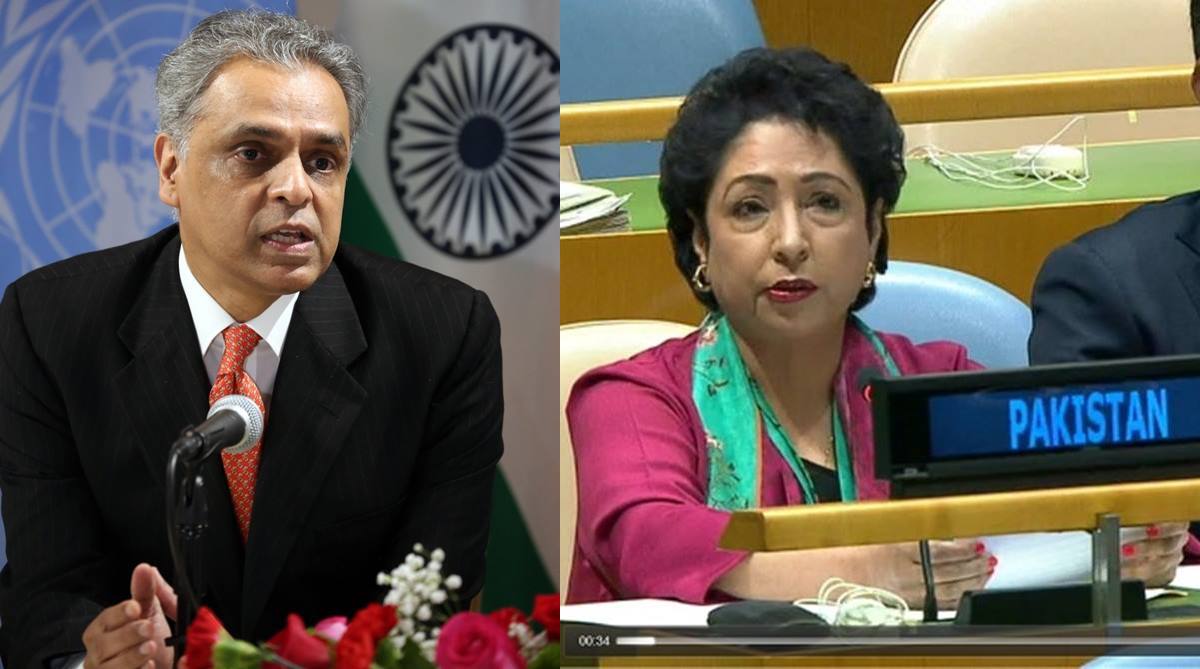Stage set for tomorrow’s polling in high profile Udhampur LS seat amid high security
Jammu and Kashmir has five Lok Sabha constituencies and each one will go to polls in separate phases because of security reasons.
At the UN Security Council open debate on ‘Mediation and the Settlement of Disputes’, New Delhi takes exception to Islamabad raising the Kashmir issue, asks the new government in Pakistan to work constructively to build a safe and terror-free South Asia rather than indulging in polemics

India’s Permanent Representative to the UN Syed Akbaruddin and Pakistan’s Ambassador to the UN Maleeha Lodhi. (Photo: IANS)
Days after making positive noises about bilateral ties, India and Pakistan clashed at the United Nations, with New Delhi taking exception to Islamabad raising the Kashmir issue and asking the new government in Pakistan to work constructively to build a safe and terror-free South Asia rather than indulging in polemics.
“…I take this opportunity to remind Pakistan, the one isolated delegation that made unwarranted references to an integral part of India (J&K), that pacific settlement requires pacific intent in thinking and pacific content in action,’’ India’s Permanent Representative to the UN Syed Akbaruddin said while participating at the Security Council open debate on ‘Mediation and the Settlement of Disputes’. He said, “Regurgitating a failed approach, which has long been rejected, is neither reflective of pacific intent nor a display of pacific content.’’
Akbaruddin’s hard-hitting remarks came shortly after Pakistan’s Ambassador to the UN Maleeha Lodhi called for implementation of the UNSC resolution on Kashmir.
Advertisement
OPINION | Origin of the Kashmir problem
Rejecting the idea of mediation between India and Pakistan for resolving the Kashmir issue, the Indian representative said it was important not to charge the UN with responsibilities that it might be ill-suited to perform. ‘’Mediation, in every circumstance, is one such task, it (UN) is not geared to fulfil,’’ he added.
Akbaruddin wondered whether the apparatus of the United Nations, as currently constituted, could perform many of the basic functions required for effective mediation. ‘’Are the mechanisms at the disposal of the UN coherent and flexible to guide dynamic negotiations with an effective strategy?’’ he asked.
In the practice of day-to-day diplomacy, Akbaruddin said, mediators needed to be backed fully by the member states while regretting that inevitably member states of inter-governmental bodies tend to speak with different voices.
OPINION | The retreat of democracy
Rather than trying and saddling the UN with responsibilities that it was ill-suited to perform, it might be better to look at alternate solutions which use the competencies of the world body more judiciously.
Earlier, the Pakistani delegate said while the UN has had some successes in mediating political settlements, its record was, “at best, chequered.”
The Jammu and Kashmir issue remained on the Security Council’s agenda but resolutions on the issue remained unimplemented till date, Lodhi said.
Advertisement